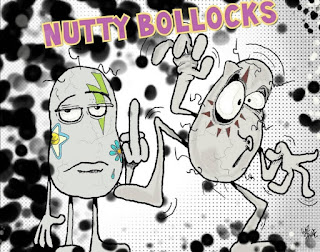Search This Blog
A collection of mind softening personal musings from a cynical fool who draws silly cartoon characters.
Featured
- Get link
- X
- Other Apps
A Unique Sheep
Unique Sheep: The Non-Conformists of the Flock?
6 to 7 min read
Are Ego and Irrationality Related?
The ego is a complex entity with boastful proclamation's like, "I'm an ego; we all are, but I have got class! I'm such an amazingly humble ego. I'm unlike anyone else, folks, look at me!" Doesn't it smell like a brain flatulence? Some exude chauvinistic alpha male masculinity. Rather than dwell on that, I want to explore our fascination with individuality, because, well... I believe egotism underlies many of the self-defining postures we adopt. Additionally, I want to touch on our inherent irrationality as a species. It might be related.
Our most human traits often intertwine with our egos. We become entangled in ourselves, but also we often fail to notice the eccentricities and wonders of others, and then, we enjoy them, presented to us on televisions shows like Gogglebox or the evening news.
Irrationality is Everywhere...
I'll share a personal anecdote. Once, my religious cousin refused to let my mother enter her house, insisting she was tainted and calling her evil. She claimed to sense the nefarious hand of the Dark Lord Satan, a judgment informed by her biblical beliefs no doubt. On reflection, this might be a poor example as she could have had a point, my mother looks possessed.
Here's a better example of irrational human behavior: anal bleaching. People contort themselves in front of a mirror to bleach an unseen area purely for the satisfaction of knowing it's flawless. It may seem abnormal, but it’s surprisingly common. I can imagine public figures indulging in such practices. This behavior doesn't necessarily stem from ego but rather from irrationality. Let's move on.
Some individuals on social media might highlight their mental diagnosis in their profiles to appear unique or special. We are unique and special. However, this doesn’t truly define them; even showcasing FIFA skills can be equally impactful, given the vast statistical information that informs our diagnostic manuals. Mental illness doesn't turn someone into a three-legged purple sheep. At heart people are precious, but the ego always tries to convince us otherwise!
Many, including myself, have strived to be unique only to find conformity to fashion trends. I once adorned myself with bling and got a tattoo to stand out—everyone was doing the same.
The pursuit of uniqueness is guided by an inner system that ensures we don't deviate too far from the flock. Characters like Donnie Darko exemplify unique individuals within acceptable bounds, while Tyler Durden from Fight Club represents a true non-conformist. There is a subtle distinction between a lone wolf and a unique sheep.
Groups like emos and rockers challenge social acceptability, yet no one wants to be ostracized for not adhering to their group's dress code!
In conclusion, humans are the most advanced species on the planet. However, I question whether our advancements are merely by-products of a Darwinian fluke. We everyday people often reinvent ourselves and seek attention, but this isn’t always driven by ego you might say, but it is. Labeling others as egotistical can itself be an egotistical act, the ego is huge, much of the human psyche is imperfect and influenced by that powerful little ego within.
Finally, consider our irrational fears, such as arachnophobia. Approximately 55% of women and 18% of men fear spiders needlessly (Watts & McKay, 2016). This extends to coulrophobia, the fear of clowns, which once sparked a global clown panic. It outlines our irrational nature.
__________________________________
Reference:
Watts, M., & McKay, D. (2016). Fear of spiders questionnaire: Psychometric properties and correlation with spider stimuli. Journal of Anxiety Disorders [Online] Available from: https://www.sciencedirect.com/science/article/abs/pii/S0887618516300147
- Get link
- X
- Other Apps

.jpg)

.jpg)
Comments